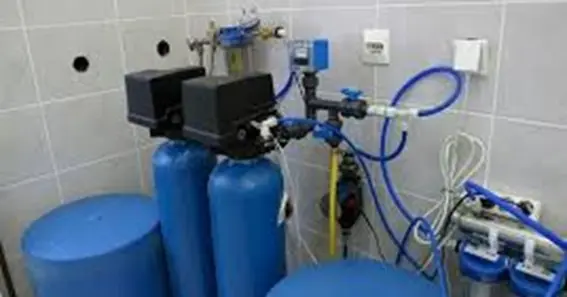For homeowners relying on well water, a reliable water filtration system for well water is essential for clean, safe drinking water. Unlike city water, which is treated and regulated, well water can contain contaminants such as iron, sediment, bacteria, and even sulfur. In this guide, we’ll explore the different types of filtration systems available, helping you choose the one best suited for your needs.
Types of Well Water Filtration Systems
- Sediment Filters
- These filters are the first line of defense, removing particles like sand, dirt, and rust that can clog pipes and appliances. They are ideal for households dealing with high levels of sediment in their water
- Activated Carbon Filters
- Activated carbon filters excel at removing chlorine, pesticides, volatile organic compounds (VOCs), and improving the taste and smell of your water. However, they are not effective for filtering out bacteria or heavy metals
- Iron Filters
- If your well water has high levels of iron, an iron filter can help. These systems prevent staining and metallic tastes by oxidizing iron and trapping it in a filter
- UV Purification Systems
- UV filters are a great option for homes dealing with bacteria or viruses in their water. UV light neutralizes harmful microorganisms, ensuring your water is safe to drink
- Reverse Osmosis (RO) Systems
- Reverse osmosis systems are highly effective at removing a wide range of contaminants, including heavy metals, dissolved solids, and bacteria. These systems are ideal for homes with multiple water quality issues
Also Read N: ICSolutions Login: A Complete Guide For Managing Inmate Communication
Choosing the Right Well Water Filtration System
When selecting a system, consider the following factors:
- Contaminants in Your Water: Conduct a professional water test to determine which contaminants are present. This will help you choose the right filtration system for your specific needs
- System Size and Capacity: Ensure the system can handle the water demand of your household. Larger families may require higher-capacity systems to maintain an adequate flow rate
- Maintenance and Costs: Some systems, like sediment and carbon filters, require regular maintenance, while others, like UV filters, need occasional bulb replacements
Also Read P: A Depressed Kendo Player Possesses A Bastard Aristocrat: A Tale of Second Chances
FAQ
1. How often should I test my well water?
You should test your well water at least once a year to check for contaminants such as bacteria, iron, and heavy metals
2. What’s the best system for removing iron from well water?
An iron filter that uses oxidation or ion exchange is ideal for removing high levels of iron, preventing staining and improving water taste
3. How effective are reverse osmosis systems for well water?
RO systems are highly effective, removing up to 99% of contaminants, including heavy metals and bacteria. They are an excellent choice for homes with multiple water quality issues
4. Do I need a UV filter for my well water?
If your water test reveals bacteria or viruses, a UV filtration system is highly recommended to sterilize your water and make it safe for drinking
5. How long do well water filtration systems last?
The lifespan of a filtration system varies by type. Sediment and carbon filters typically last 6 to 12 months, while UV bulbs need replacing annually. More robust systems, like RO units, may last several years with proper maintenance
Investing in a water filtration system tailored to your well water needs ensures your family has access to clean, safe water year-round.










